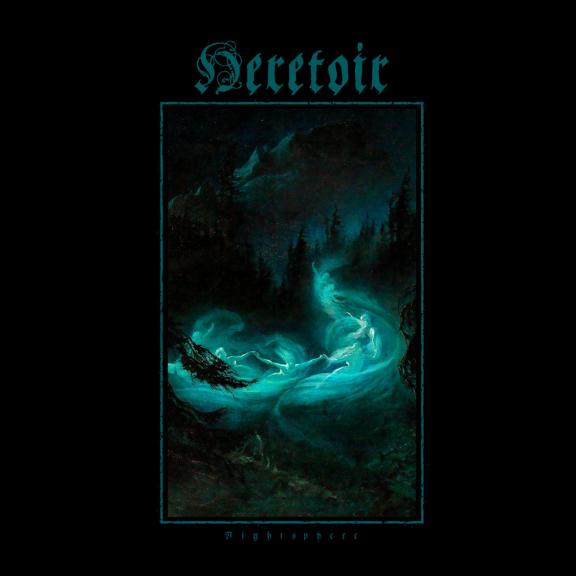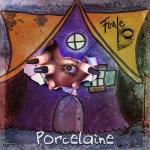After releasing a remastered version of their self-titled debut album in February, which beautifully captured the theme of loss in melody, and the mini album Wastelands in May, German black metal/shoegaze outfit Heretoir, who have carved out a place for themselves on the atmospheric metal scene in recent years thanks to numerous successful tours and performances, are back in the news with the October 6 release of their third album: Nightsphere. This is their first opus to be written entirely by the full band, with contributions from every member (note also a songwriting contribution from Hannes Stoltenburg aka Hidehidehide on two instrumental tracks). While The Circle was released in 2017 with a sublime cover by Fursy Tessier, the cover for Nightsphere is a work by Karl Wilhelm Diefenbach, a German Symbolist painter (1851-1913) called The Fairy Dance, which sets the nocturnal mood that weaves its way through the album.
Sanctum - Nightsphere Part I begins gently, taking us into a desolate world: the tone is set that this album will be an ode to Nature in a future literally devastated by progress. A man makes his way through the chaos, seemingly contemplating disaster as he turns to the "mother goddess" Gaia (personification of the earth, who according to Greek mythology created the sky to unite with it). The cries convey a desperate prayer. The notes accompany his nostalgia and affliction, taking us with him. Twilight of the Machines, a collaboration with Tim Yatras (Austère), builds in intensity, the guitar swirling like a storm while the drums keep a more restrained but heart-rending rhythm, all seeking balance in a world close to apocalypse driven mad by emptiness. The machines, an allegory of alienated progress and over-developed technology that prevents us from reconnecting to the essential by living in harmony with our environment, are giant and suck us in. The lyrics are inspired by Stanley Diamond's book In Search of the Primitive: A Critique of Civilization, a critique of the discipline of anthropology and the civilization that produced it, seeking to distance itself from the Western point of view, which he sees as self-centered, and thus rejecting the association of "evolution and progress" or "domination and progress". After this emotional and reflective gust of wind, Pneuma sounds like a contemplative interlude. The tone is soothing, taking time to reconnect with the environment. Celestial piano notes make their way through the fog, at once lost and anguished, at once gentle and meditative. Glacierheart - Nightsphere Part II (featuring vocals by Nikita Kemprad - Der Weig Einer Freiheit) wakes us up with pessimism and poetry. The lyrics are powerful and beautiful, paying homage to the World, to the entire Universe, but above all to each element, each species that surrounds us. The melody is heavy even if sometimes gentle (which leaves room for the listener's introspection), the vocals plaintive, and our hope flies away once and for all at its epic conclusion. The five tracks form a space so dark and dense, at once so far away and so close to us, that we feel The Death Of Man sounds like the death knell of what may soon await us, and closes this nocturnal sphere with splendor.
If the immense work on this album is felt from start to finish, it is nonetheless accessible (albeit with a certain amount of attention), which not only makes it possible to convey the message more clearly, but also to enter Heretoir's universe from the very first listen, quickly learning to appreciate it. If the beauty of this work mirrors the beauty of its subject, let's hope that its end is not the mirror of our own end. In the meantime, we plunge again and again into the darkness of Nightsphere, reliving this chaos ad infinitum in the company of its ghosts, much to our delight.





